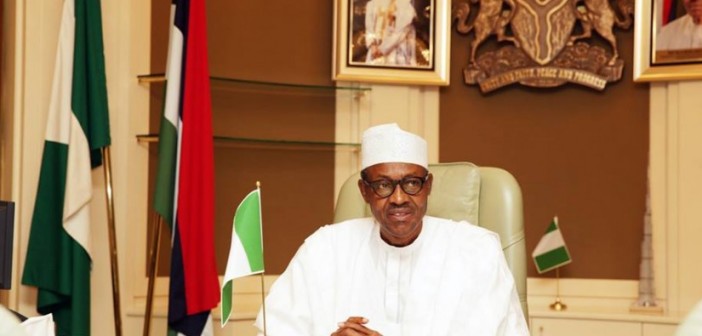President Muhammadu Buhari is expected to submit estimates of the 2017 Appropriation Bill of N6.847 trillion to a joint session of the National Assembly by October 31.
In preparation for the presentation, Mr. President has since forwarded the Medium Term Expenditure Framework (MTEF) and Fiscal Strategy Paper (FSP), for 2017-2019, which explains fundamentals of government’s revenue and expenditure to the National Assembly in August before lawmakers went on their summer recess.
The MTEF is a precursor to the national budget. Initial figures estimate that the 2017 budget will only be N400 million higher than the 2016 budget which was N6.04 trillion. “Thirty-three percent of this is to come from oil sources while the balance is derivable from non-oil sources – in consonance with the government’s renewed focus on diversification of its revenue base.
The planned aggregate expenditure is estimated to exceed the provision of N6.06 trillion in the 2016 budget by 13.3 per cent (or about N806 billion) with projected deficit at N2.22 trillion, below the three per cent of Gross Domestic Product (GDP) prescribed by the Fiscal Responsibility Act.
A letter accompanying the document was read at plenary of both chambers yesterday. The letter stated that the document would provide the framework for the development of 2017 budget. adding that MTEF and FSP were designed against the backdrop of an adverse global economic environment.
In the letter, Buhari said, “the MTEF and FSP, which would provide the framework for the development of the 2017 budget, were designed against the backdrop of a generally adverse global economic environment. “It is also to address fiscal challenges in the domestic economy.
“In this regard, the 2017-2019 MTEF and FSP articulates the Federal Government’s economic, social and developmental objectives as well as the strategies for achieving these defined objectives and priorities.
The President urged lawmakers to “kindly consider and expeditiously approve” details in the MTEF/FSP “so as to move the 2017 federal budget preparation process forward.”
The content of the document sent to the Senate was the same draft approved by the Federal Executive Council (FEC) which pegged the crude oil benchmark for the 2017 budget at $42.5 per barrel and the exchange rate at N290 to one dollar.
Minister of Budget and National Planning, Senator Udoma Udo Udoma, had explained that government intends to use $42.50 as a reference price in 2017, while projecting $45 in 2018 and $50 in 2019. He also said: “in terms of oil production, we are keeping to the same level of this year for 2017 and that is 2.2 million barrels per day. For 2018, 2.3 million barrels per day and 2019, 2.4 million barrels per day.”
On GDP growth, Udoma said government was targeting in 2017, a three per cent growth rate, 4.26 per cent in 2018 and for 2019, a 4.04 per cent.
Regardless, Daily Sun gathered that, to ensure the October deadline is met, federal ministries, departments and agencies (MDAs) have started defending their allocations.
The also government said it will continue with the Zero-Based Budgeting (ZBB) system introduced in 2016. “This time, the budgeting process is being automated to minimize human interface and address other glitches experienced in the first implementation of the ZBB.
Value Added Tax (VAT) for next year is predicated on an estimated aggregate national consumption of N80.05 trillion, down from about N91.96 trillion estimated for 2016, taking account of VATable items, ongoing broadening of the tax base and collection efficiency. The VAT projections over the medium-term are currently based on maintaining the rate at 5% while focusing intensely on broadening the coverage.
As contained in the 2017-2019 MTEF/FSP, “the Sovereign Wealth Fund (SWF) will continue to be utilized to support execution of critical capital projects like the completion of the Second Niger Bridge. Government will also optimize opportunities for support in infrastructure from our development partners.
The document also detailed how Nigeria’s total public debt stock stood at $61.45 billion (about, N16.3 trillion) as at June 30, 2016. The total debt stock is comprised of external debt stock of $11.26 billion (or about N3.19 trillion) and domestic debt stock of $50.19 billion (N13.11 trillion). Of the total domestic debt, the Federal Government was responsible for about 74.6%, while the 36 states and the FCT accounted for the balance.
Government, however, agreed that, “the 2017–2019 MTEF and FSP is prepared against the backdrop of the challenging global economy and some peculiar developments in the domestic economy, which continue to impact the domestic economy. The twin – oil production and price – shocks continued to exacerbate internal and external imbalances while growth in the economy receded in the year due to a slow-down in economic activities. Fiscal buffers and monetary buffers were low and rising demand for forex continue to put pressure on the exchange rate, interest rates, and inflation.




